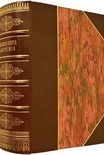Coconut Chaos by Diana Souhami (best ereader for pdf TXT) 📗

- Author: Diana Souhami
Book online «Coconut Chaos by Diana Souhami (best ereader for pdf TXT) 📗». Author Diana Souhami
The Braveheart arrived in the night. It sounded its siren as it crossed the reef, a forlorn echo. Another vessel with a name of affirmation: Bounty, Providence, Resolution. ‘Our friends are here,’ whispered Lady Myre. Again we shared the same tiny cabin which now was motionless on the calmest of nights. She didn’t share my awkwardness about our continued intimacy. She treated me with confident familiarity, as if there were no uncertainties to allay. She didn’t mind about my hesitancy as long as I accommodated her abandon.
I remarked on her golden skin now the pinkness had quietened down.
‘D’you find me beautiful?’ she asked, ‘as I do you.’ I kept telling her to shush because sound so carried in this unfamiliar quiet.
‘Oh come on,’ she said, ‘if the Braveheart can bellow like a harpy, I can scream a bit too.’
‘You’re not a ship,’ I said with my customary perspicacity.
‘O yes I am,’ she replied. ‘Your ship has come home.’
I thought of clichés of certainty: I knew as soon as I saw you. It was love at first sight. ‘We’ll be on the same plane to Tahiti as the Braveheart lot,’ I whispered to her. It would leave the following afternoon but only if the weather was fine. I told her of my plan to visit the museum of anthropology in Tahiti, then fly to Tubuai in quest of evidence of Fletcher Christian’s attempt to found a colony there. She said that was fine by her, and that she knew Dubai and Abu Dhabi. She always stayed in the Burj al Arab, but liked the gardens of the Hatta Fort. She kept most of the gold she’d acquired there in a safe at Little Nevish.
‘Tubuai,’ I said. ‘Tubuai. Tubuai. Not Dubai. One of the Austral Islands in French Polynesia.’ I told her it supplied vegetables to Papeete, the capital of Tahiti, and it was where Fletcher Christian had tried to build a settlement he called Fort George, in bizarre honour of the English king, after he’d dumped Bligh on the high seas.
‘Try to sleep, sweetheart,’ Lady Myre said. ‘You’ll feel like death in the morning.’
For much of the night I lay awake. She cradled against me, breathing peacefully. I supposed I was in a fix. It wasn’t that she was wrong, but she so wasn’t right. My journey didn’t feel safe. I didn’t understand myself, though I felt I understood her. I thought of Soni’s arranged marriage and how the customs and expectations of a time-honoured society could sustain two disparate people. The convention of marriage. And I thought of the accepted sexual exchanges of eighteenth-century Tahitians. But two women on a random journey, who’d elided in the night … I pondered the yearning for love, the yearning to feel less alone.
In the morning she garlanded herself, Polynesian style, with shells given her by the Belgian yachtie. She’d heard that a flower worn behind one ear indicated the wearer was romantically available, and behind the other it meant she was married. She couldn’t remember which ear meant what, so gardenias and hibiscus jutted from both. She and Kurt chose to go in the dinghy to the Braveheart in the hope of a large breakfast: eggs, bacon, sausage, chips and beans.
Alone on the boat I showered, drank coffee and sorted my clothes. I wondered about the envelope from Charlie Mo. I opened and resealed it. It was a wadge of dollars. I stared across the lagoon. Suckerfish squirmed around the hull of the boat. They ate the waste and excrement ejected into the bay. In my mind I went back to the storm, to the black, mountainous waves and frantic spray. I imagined the boat tipping over and being trapped in the hull with Kurt and Lady Myre. I thought of the Pandora as it crashed against the Barrier Reef, the prisoners with manacled hands and feet, powerless to swim, how Peter Heywood had said he was haunted by the cries of them floundering, desperate to be saved, and how, when the boat returned after leaving the rescued on an islet, there was silence.
In a passing moment I missed Verity. Each morning she’d tied her dressing gown at the same side, half-filled the kettle, taken the butter from the fridge to soften, let the tea brew for precisely one minute. I would not observe those things again.
Les, the Pitcairn locum checked the Belgian Rastafarian who’d fallen out of a tree. He said his spine seemed all right, he told him movements to avoid and symptoms to watch for and thought him fit to sail to his next destination, wherever that might be. He also checked Claudia, Wilhelm’s girlfriend, who complained of stomach pains and lethargy. He said she had chronic constipation and should eat beans and fruit and take exercise. I thought of Dr Huggan who sailed with Bligh as the Bounty’s surgeon, how he was always drunk and invented diseases with fantabulous names, and what a good comic character he’d be in a play but how terrifying his ineptitude for those with broken limbs or infections.
Kurt said the officials on the Braveheart had wanted me to leave Pitcairn because they feared for my safety. Someone might shoot me. I was a writer. I’d inveigled my way on to the island. I tried to defend myself. I said I’d mentioned early on in an email to Rosie that I was a writer. She hadn’t seemed bothered. As I spoke, I thought how unpleasant self-justification sounds. Those who choose to think badly of us will do so. It’s hard to change anyone’s mind. The paranoia of the islanders was infectious. The officials had caught it. No one had thought to shoot me, of that I





Comments (0)